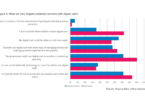Yesterday the Bank for International Settlements (BIS) published a research paper entitled “Permissioned distributed ledgers and the governance of money“.
The authors Raphael Auer, Cyril Monnet and Hyun Song Shin note that other economic research into central bank digital currencies (CBDC) has focused on the impact on balance sheets and the financial system. Instead, their research looks at governance.
The authors conclude: “Our results suggest that a centralised ledger is likely to be superior, unless weaknesses in the rule of law and contract enforcement necessitate a decentralised ledger.”
Blockchain and distributed ledger technology (DLT) networks involve roles in terms of users and validators. The latter check transactions and vote on which transactions are written to the ledger.
How validators are compensated is critical to ensure they are sufficiently incentivized to participate and not accept bribes.
Incentivizing validators
The paper uses game theory to explore the optimal design in terms of the number of validators, how much they’re paid and voting rules such as how many validators need to agree to approve a transaction.
Generally, DLT requires validation of a history of transactions to know who currently owns a token or currency. Otherwise, a payment could be logged, and if the history is rewritten, it could reverse the payment. This is where bribery is a major issue.
In terms of voting rules, logically, if 75% of validators have to approve a transaction versus 51%, then a transaction is more likely to fail simply because a higher proportion needs to agree. But it’s desirable to have a higher level of agreement. To get the same number of transactions approved at 75% versus 51%, the validators will need to be paid more.
However, there are other incentives for good behavior. A validator is more likely to behave properly if they’re also a market participant. They have skin in the game. And the more actively they participate, theoretically, the more they have to lose by corrupting the system. This is consistent with the idea that if a validator expects future rewards to be high, they are less likely to accept a bribe.
Bribery isn’t the only bad behavior that validators could exhibit. In some cases, the validation process can be rather expensive. So validators could be inclined to quietly skip the validation process and vote with the majority of other validators, which could also undermine the ledger. This is the free-rider problem and is more likely the larger the number of validators.
Despite the overall conclusion that centralized ledgers are preferable, the paper also notes, “While it is costly to duplicate verification and communication across many validators, we find conditions under which many validators are better than one.”






